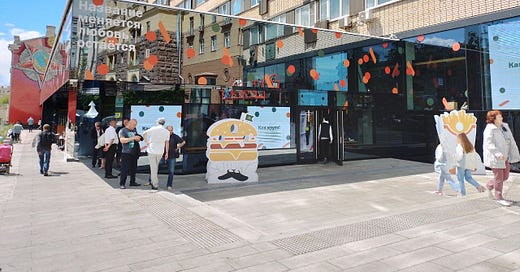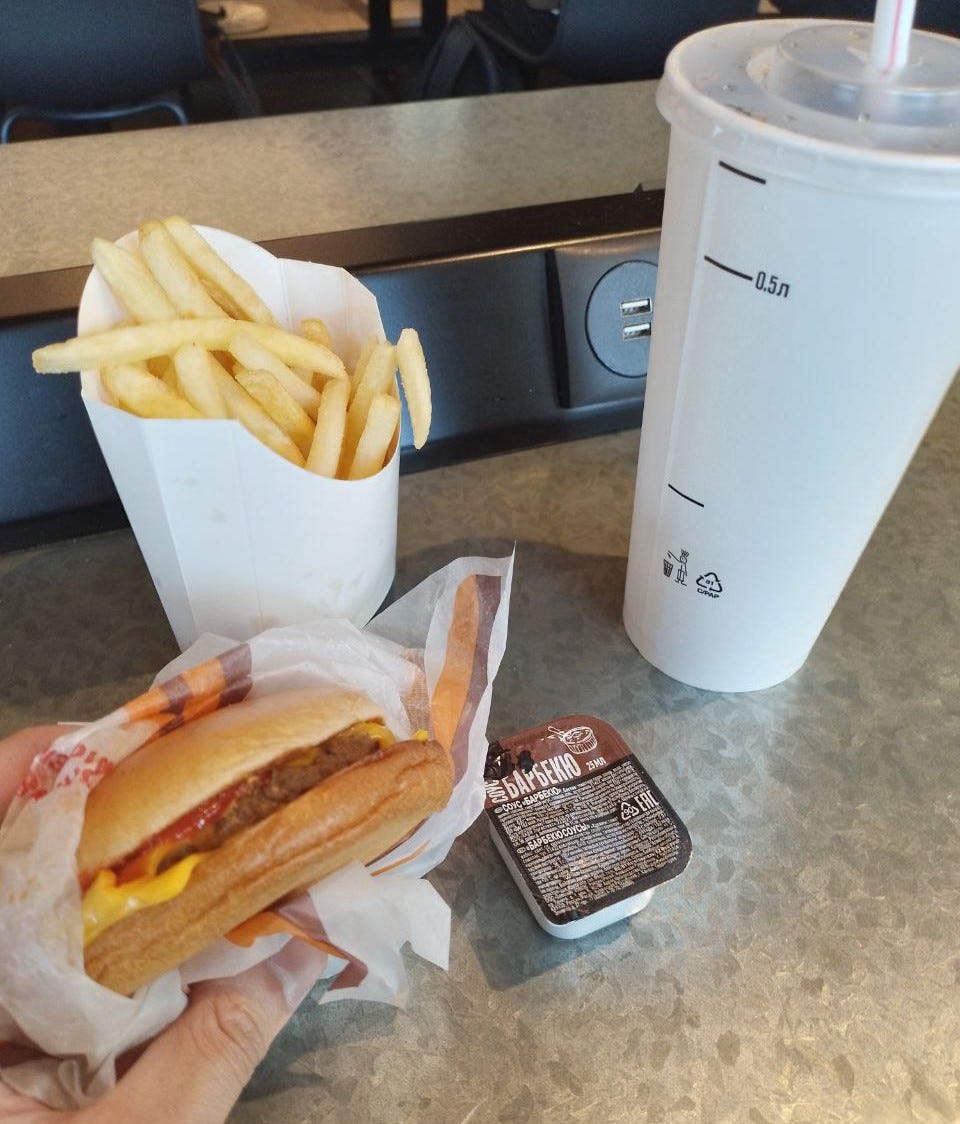Telegram #25 - McDonald's with Russian Characteristics
Trying Russia's "Vkusno - i tochka"
Yesterday, after completing my exam for International Finance, I finally got around to trying Russia’s version of McDonald’s renamed and rebranded to “Vkusno - i tochka”.
McDonald’s sold its Russian business on May 19th to Alexander Gover, the company’s licensee in Siberia. The decision was made amidst the current war in Ukraine. A wave of foreign companies have suspended operations or left Russia since the beginning of the war on February 24.
The official translation of the name is “Tasty, And That’s It”. “Tochka” can be directly translated to “period”, as in the punctuation mark at the end of this sentence. Though, I am relieved they did not adopt the literall translation of the name.
I made my way to the branch opposite Pushkinskaya Square, the site where McDonald’s first opened its doors in the Soviet Union on 31 January, 1990. Above the entrance - with no Golden Arches in sight - was a slogan: “The name has changed, but the love remains.”
Using the self-ordering stand (or whatever it is called), I noticed that the interface had not change at all. The presence of the symbol of “Vkusno - i tochka” (which looks awfully similar to MosBurger, a Japanese fast food chain) was all that was different, aesthetically. Unfortunately menu items were limited, there were no replacement of Big Macs. Russia truly had extricated itself from the Big Mac Index.
I ordered a double cheeseburger with fries, barbeque sauce, and a Coke Zero, the latter now a finite “luxury” in Russia as CocaCola has announced it will cease production in the country. The grand total was 267 Rubles, about $6.55 SGD at the current exchange rate as of writing. According to the Singaporean McDonald’s menu, a double cheeseburger meal costs $7 SGD.
I am not a food critic, but all I can say is that everything was practically the same. Taste, texture, everything. All that was different was the austere aesthetics of the plain disposable wrappers and cups.
One funny thing however, was that the old McDonald’s logo on my barbeque sauce packet was redacted with a black marker. I applaud the worker who had to painstakingly censor this legacy of Westernization. While there is an ounce of humor in this, it also symbolizes something about Russia and the way it contends with its past. First, uncomfortable truths are censored. Removed. Then, something new will come to replace it, just as new packaging will be made available, and not long from now people will - more or less - forget that this all once was “McDonald’s”.
While eating I overheard many conversations still referring to the establishment as McDonald’s. Some would quickly correct themselves to call it “Vkusno - i tochka” followed by a brief chuckle. But just as we, over here, have been told to call what is happening a “spetsoperatsiya”, it induces people to stop themselves from recognizing reality; rather, a layer is placed over it and through time it will become harder to scratch off than the ink of a black marker.
The departure of McDonald’s marks the end of an era of openness and Russia’s connection with the “rest of the McDonaldized world”. I recall that my first meal in Russia when I arrived in 2019 was, in fact, a Big Mac. My taxi driver, realizing that I was famished, offered to swing by a drive through on the way to my dormitory. The fact that there was no Big Mac on the menu meant, to me, that the Russia I first knew was now long gone.






